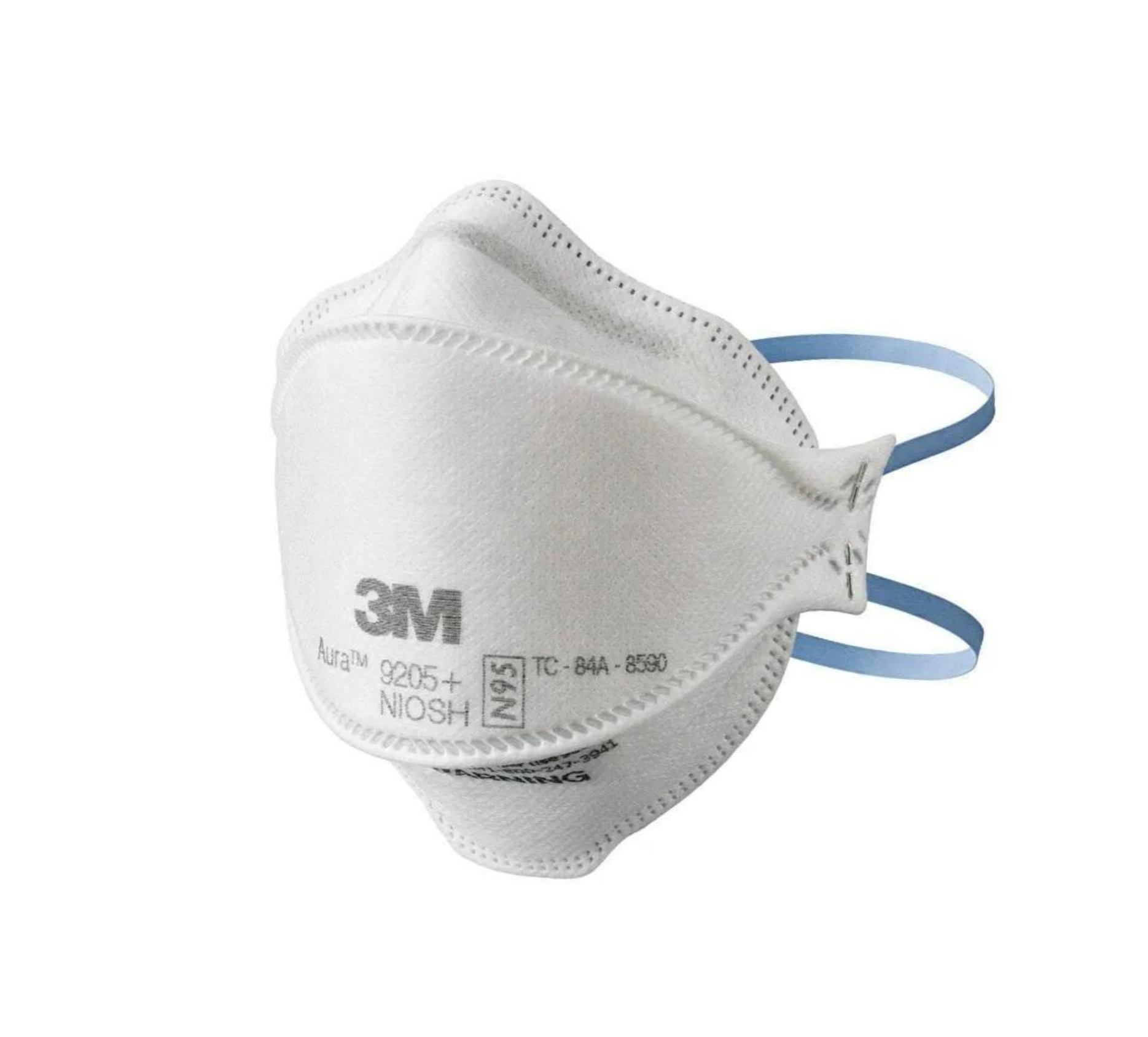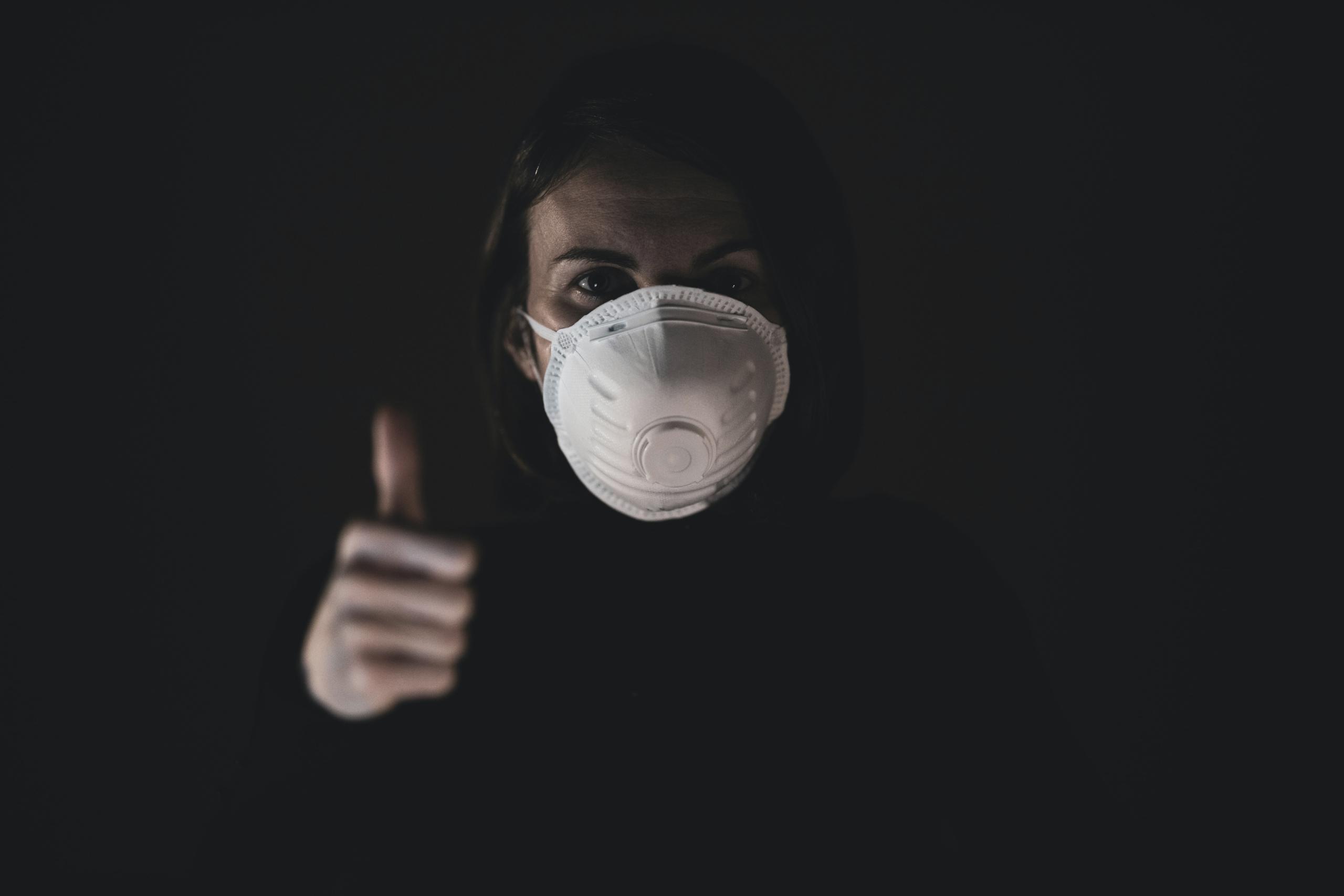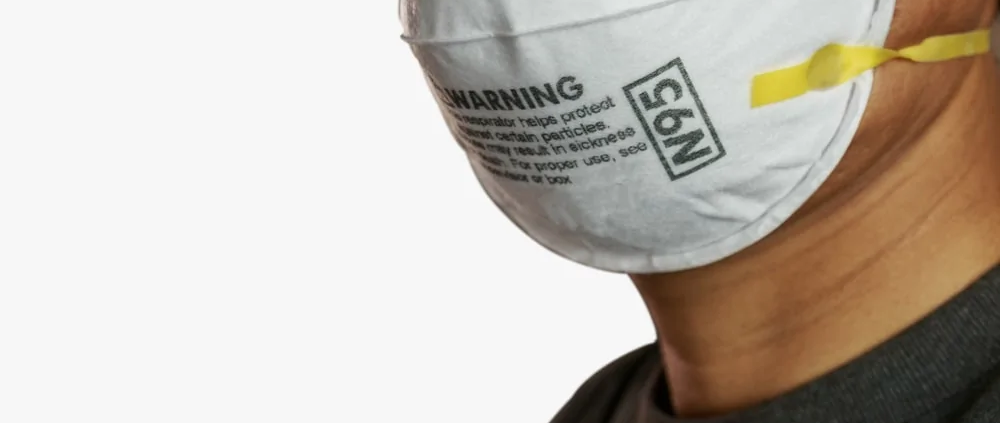Most people don’t know how they got infected with COVID-19. Anthony, for example, believes he has been navigating our Omicron world safely by wearing an N95 mask in indoor areas and washing his hands often. He recently found out he contracted the virus and he does not understand how he got infected. Despite wearing an N95 respirator mask daily at work, he likely picked up the virus at his workplace, as a few coworkers were sick with COVID just before him. However, Anthony never did an N95 mask fit test and, likely, he wasn’t wearing his N95 respirator mask properly. While it is still possible that the virus was able to make it past the defense that his N95 mask offers (an N95 mask has an effectiveness of 95%, meaning there is a 5% chance it will not catch a foreign particle), most people don’t wear their masks properly.
What is an N95 mask?
An N95 mask is a respirator that has been given an N95 rating by the National Institute for Occupational Safety and Health (NIOSH). N95 masks offer increased protection against air particles compared to cloth masks and surgical masks. Improper use of an N95 mask can be a reason why some people come down with COVID-19 or are unknowingly exposed to other airborne particles. It is important to properly put on an N95 mask, because not doing so defeats the purpose of using one. An N95 mask offers its user a heightened level of protection if used in the correct manner. When using an N95 mask, it is important that a user remove any facial hair, makeup, or any other obstructions so as to create a good seal between the mask and their face. It is this seal that will provide the best form of protection.

How can I put on my N95 mask properly?
An N95 mask can be donned (put on) properly by following the 10 must-do steps below:
- Before anything else, make sure that you are using a new mask. Using a new mask will ensure that there are no particles already trapped in the mask, allowing it to catch as many particles as possible in the future. Furthermore, always use your own mask and never borrow one from someone else. An N95 mask, and any other mask for that matter, should also not have any defects like rips or tears. Defects will affect the quality of the protection that you should be getting, so when your safety is involved, defects are not acceptable.
- Next test the straps of your mask. You do not want your mask to hang loosely from your face or even worse fall off. Before donning the mask, push your hair back if it’s longer and take your glasses off if you wear them.
- Now you want to prepare the mask to be donned. Make sure to hold the mask properly, by cupping it and putting its straps on the back side of your hands. Place the N95 mask on your face.
- Make sure that the top strap is on the crown of your head. If tying your hair back, using a ponytail or bun positioned between the upper and lower straps usually works best. Ensure that the straps of the mask are also away from your ears.
- The bottom strap of the mask should be on the nape of your neck, and not on any hair. You want to make sure that the straps are not on any recreational or religious headwear if possible. The straps should be resting against your head and all straps should never be twisted or looped.
- Fitting your N95 mask to your own face is very important, as an improper fit can allow foreign particles in quite easily and will undo all your other hard work. Mold the mask to your nose with both hands, making sure that it is pressed firmly against the bridge and sides of your nose. Do not forget to mold the wire so that it also fits nicely around your nose. Avoid pinching while you are doing this, as you will get a better fit by using all your fingers and molding the entire upper portion of the mask to your face.
- Now you can put back on any glasses that you took off previously. Steamed glasses while wearing a mask does not necessarily mean that there has been a break in the seal.
- Do a quick seal test. When wearing an N95 mask, especially for one that you have not previously used, you can perform quick seal tests. You can do a positive seal test by putting your hands over your mask, covering as much of it as possible and then breathing out softly. If the mask has a good fit, then you will feel some pressure inside the mask without any evidence of large air leakage. If you would like to do a negative seal test, then you can also cover your mask with your hands and then breathe in. The mask should collapse to your face and you should not feel any air moving between your skin and the mask. If you detect leakage for either seal test, try fitting the mask to your nose better or adjusting the straps. If both of these remedies fail to make a difference, then it is possible that you need to be fitted for another N95 mask.
- Once you are done with wearing your N95 mask, it is time to remove it. Removing the mask, also known as doffing it, can be done by grabbing both straps and pulling them over your head, thereby moving the mask away from your face. You should never flick the mask while doing this, as such a motion can allow trapped aerosols to escape.
- Finally, you can rest the mask in something like a paper bag (with the exterior of the mask facing down and the straps resting above), or you can properly disinfect it. If you plan on reusing an N95 mask, especially one that was used in an area with a high risk of coming into contact with COVID-19 particles, make sure to air-quarantine it or use a new one. Do not use an N95 respirator past its shelf life. The date of expiration can usually be found on the mask’s packaging. Try to follow the instructions provided with your mask for proper storage procedure.
Can I use a KN95 mask instead of an N95 mask?
Yes, you can! There is not much of a difference between the criteria of these two ratings, but it is important to note that an N95 rating provided by NIOSH is one overseen by an North American organization that is affiliated with the CDC, while a KN95 rating is not. Both masks should offer similar levels of protection and can also use the same procedures for donning and doffing them.

Where can I do a mask fit test for my N95 mask?
If you would like to get an N95 mask fit tested, or are required to by your workplace, then this program has got you covered. It will use a Qualitative Mask Fit Test to easily figure out if an N95 mask is fitting to your face properly. A qualitative fit test will use several breathing and motion exercises to test your senses of taste and smell, in order to determine if an N95 mask is the right fit for you.
I would like an N95 mask, where can I get one?
Look no further, we have N95 masks on our online storefront. Here are some that are popular and that you can use during your mask fit test. Using an N95 mask and getting mask fit tested is an excellent way to protect yourself from something like COVID-19 and many other airborne pathogens.

